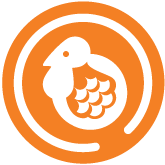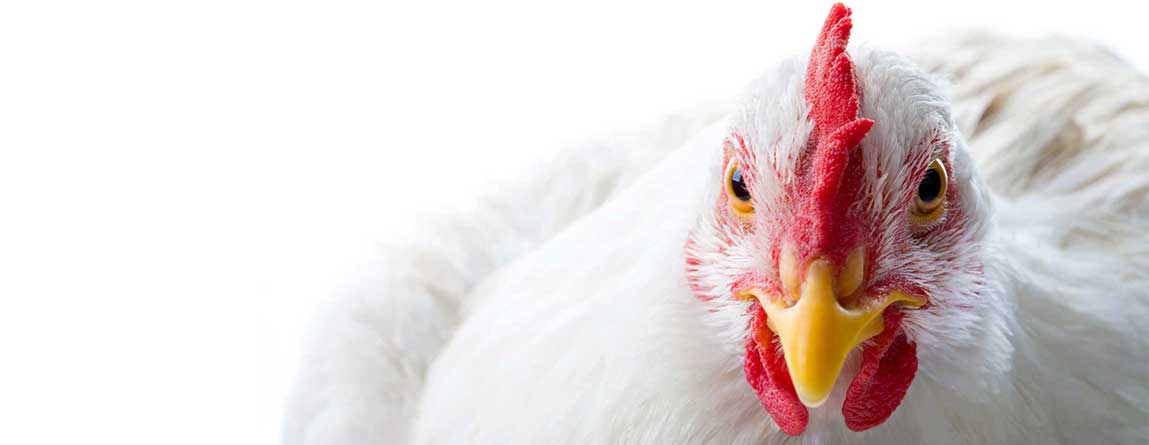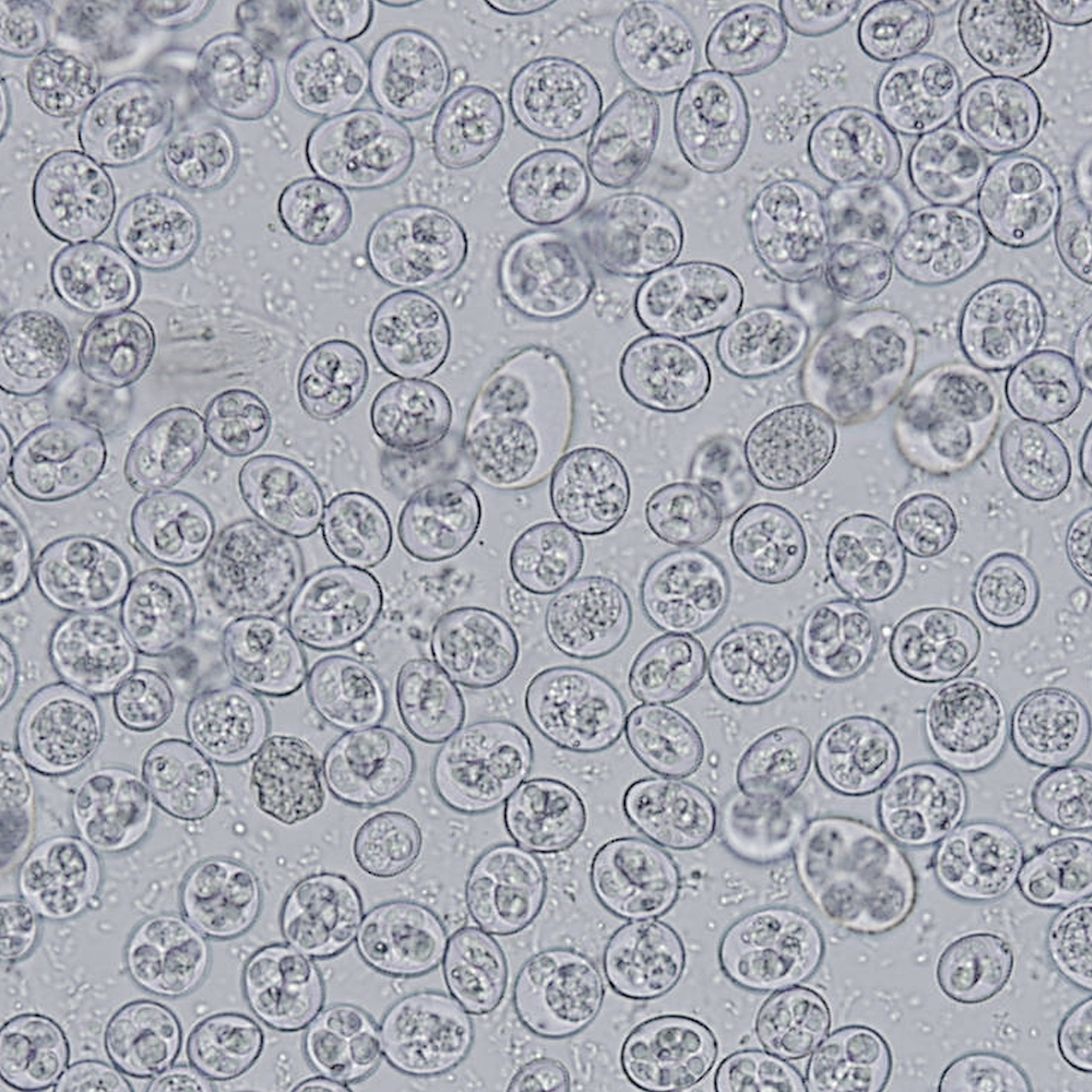
POULTRY
FIND THE BEST SOLUTION

Coccidiosis in poultry
Coccidiosis is an ongoing threat present in poultry production that is familiar to any veterinarian working with poultry farmers.
Despite the coccidiostats commonly used for many years, coccidiosis generates the most serious economic losses in poultry production.
It is a disease caused by species-specific, parasitic protozoa of the genus Eimeria spp. Seven species are specific to chickens and five to turkeys. The lesions caused by each coccidian species are different. A common feature of all Eimeria species is that they parasitize inside the host cell, which additionally protects them against the direct action of antibodies.
Species identification is based on clinical symptoms and determination of the parasite’s location and lesions in the gastrointestinal tract during postmortem examinations.

Coccidiosis can occur in three forms – acute, chronic, and subclinical, which are manifested by different intensity of disease symptoms such as persistent diarrhea with mucus or blood, reduced weight gain, reduced laying rate, lack of appetite, ruffled feathers, apathy, weakness, or increased mortality.
To control the invasion of ubiquitous coccidia, disinfection and coccidiostats (ionophore or chemical), added to feed, are used. Reproductive and laying flocks are usually subjected to vaccination. However, vaccination of birds is expensive, so it is not popular especially in commercial broiler production. The use of immunoprophylaxis does not always guarantee the development of full immunity and protection against disease outbreaks.
Eimeria parasites, that cause coccidiosis, lead to loss of intestinal integrity. Diets composition play an important role in the development of coccidia populations living in the intestines of birds. In addition, at such times, other pathogens join the parasites, disrupting the microbial balance of the intestines and causing severe secondary infections.
One of the most important tasks in poultry farming, if not the most important, is to maintain the proper functioning of the gastrointestinal tract from the very first days of the birds’ lives. Stabilization and proper development of the intestinal mucosal epithelium helps to protect the flock from pathogenic microorganisms.
The use of coccidiostats, especially those of an antibiotic nature, carries the risk of increasing microorganisms to the chemotherapeutics used and the development of cross-resistance in various strains of bacteria.
Increasing consumer demands to produce food of animal origin without the use of chemotherapeutics, creates the need for alternative solutions.
The most beneficial results are obtained by combining various preventive measures, and an excellent complement to good biosecurity and vaccination is the use of properly formulated phytogenic preparations.
Therefore, with the health of both birds and humans in mind, it is increasingly recommended to use natural, herbal products that stimulate the immune system of birds, promoting the fight against protozoa and bacteria. Additionally, such complementary diets enhance feed intake and digestibility, while helping to regenerate the intestinal epithelium, reducing the risk of mortality.
Prophylaxis of coccidiosis is an important challenge for the farmer, and the use of herbal-based formulations can make a safe alternative to commonly used coccidiostats.
If you are interested in the details of the research being conducted on modern phytogenic solutions in animal production, please feel invited to read the #ADIFACTS tab or contact your AdiFeed® representative.
Bibliography:
- Doner S., Szeleszczuk P., Żbikowski A..; Kokcydioza kur; Życie Weterynaryjne 2019, 94(7), 494-502.
- Iwiński H., Łyczko J., Różański H., Szumny A.; Novel formula of antiprotozoal mixtures; Antibiotics 2022, 11, 913.
- Martins R.R., Silva L.J.G., Pereira A.M.P.T., Esteves A., Duarte S.C., Pena A.; Coccidiostats and Poultry: A Comprehensive Review and Current Legislation; Foods 2022, 11, 2738.
- Mazurkiewicz M.; Choroby drobiu. Praca zbiorowa pod redakcją M. Mazurkiewicza; Wydawnictwo Akademii Rolniczej we Wrocławiu, Wrocław 2019, 599-613.
- Pastuszko J.; Kokcydioza jelit ślepych wywoływana u kura domowego Gallus Gallus Domesticus (L.) przez Eimeria tenella (Railliet et Lucet, 1891) Fantham, 1909. Patologia, epizootiologia i zjawiska odpornościowe; Wiadomości Parazytologiczne T. XIX, Nr 5, 1973, 673-686.
- Różański H., Abramowicz-Pindor P., Cichocka E., Drymel W.; Fitoncydy i fitoaleksyny w chowie i hodowli drobiu; Przegląd hodowlany 5/2020, 31-33.
- Ziomko I., Cencek T.; Wpływ kokcydiozy drobiu na efekty produkcyjne w hodowli drobiu; Wiadomości Parazytologiczne T.45(2) 1999, 181-186.

